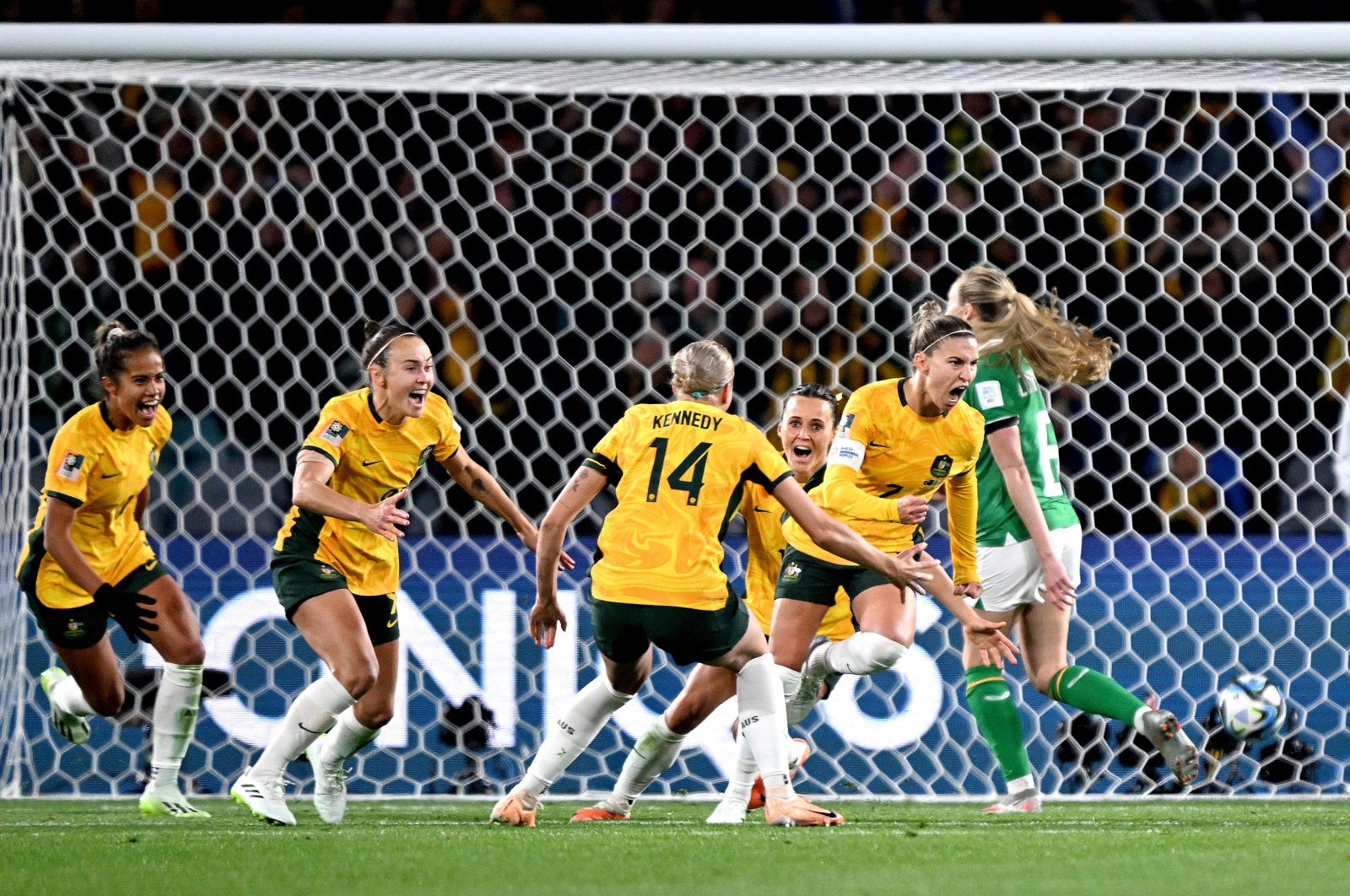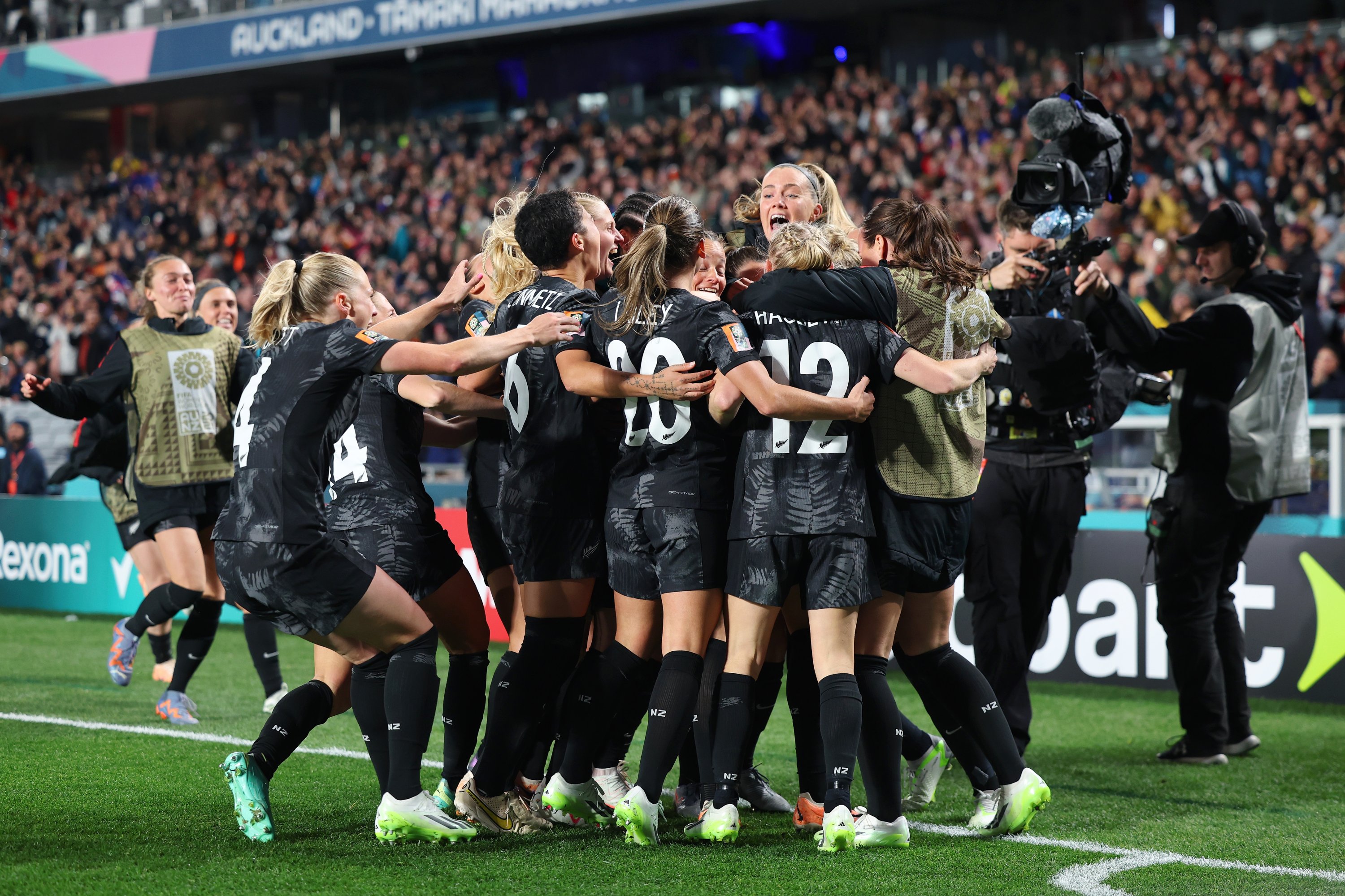
The highly anticipated ninth Women's World Cup kicked off in grand style Thursday as co-hosts Australia and New Zealand wowed the world with electrifying yet slender wins and record-breaking attendances, but not without a somber moment of tragedy near the Norwegian team hotel in Auckland, where three lives were lost and six others injured.
The shooting incident, thankfully, was swiftly dealt with by the authorities, ensuring the safety of participants and spectators alike.
New Zealand Prime Minister Chris Hipkins provided reassurance, confirming no risk to national security.
The opening ceremony at Eden Park exuberantly celebrated the traditional Maori culture, including the iconic Haka war dance.
The excitement soared when Hannah Wilkinson scored a stunning goal, securing New Zealand's 1-0 victory over Norway.

The ecstatic crowd of 42,137 shattered the host nation's previous record for an international football match, setting the stage for an exhilarating tournament.
Security was visibly heightened around the stadium, offering comfort to attendees like Isabella Beeortegui, a 22-year-old student, who expressed relief at the heavy police presence.
The vibrant atmosphere was palpable as fans expressed their excitement, exclaiming that the energy was "crazy" and everyone appeared "super stoked to be here."
FIFA, the governing body of football, swiftly responded, offering support to the teams near the incident.
Reassuring fans, FIFA stated that the shooting was an isolated incident unrelated to football operations, confirming that the opening match at Eden Park would proceed as planned.
However, as a precautionary measure, the fan park in the city remained closed.
Across the Tasman Sea, Australia's Matildas commenced their campaign with a hard-fought 1-0 victory against Ireland in front of an astounding 75,784 fans at Stadium Australia in Sydney.
This impressive turnout marked a record attendance for a women's football match in the country.
However, the team faced a setback as their talismanic striker, Sam Kerr, the face of the tournament, was ruled out of the first two games due to a calf injury.
The tournament symbolizes a momentous milestone for women's football, which has seen remarkable growth in recent years, with an increasing number of female players and enthusiastic spectators worldwide.
Professor Tracey Taylor from RMIT University highlighted the transformative impact of the event on women's sport participation in Australia, resonating globally and sparking increased awareness within local communities.
Yet, challenges persist, and gender disparities in football are evident in various regions.
The Matildas voiced their concerns through a video, expressing dissatisfaction with the "disrespect" shown to the women's game during the 2015 tournament, where teams were made to play on artificial pitches, and the prize money still lags that of the men's World Cup.
Several participating nations, including powerhouse teams like England and Spain, have engaged in disputes with their administrators over working conditions and equitable pay.
In Australia, star players like Sam Kerr have attained household-name status, and tickets for home nation matches sold out months in advance, highlighting the country's passion for sports.
Meanwhile, in New Zealand, where rugby union and the famed All Blacks dominate the sporting landscape, ticket demand has been relatively lower, with tickets remaining available for many fixtures.
Fatma Samoura, FIFA's Secretary-General, acknowledged that ticket sales for this edition had already surpassed the last tournament in France.
Still, she encouraged Kiwis not to wait until the last moment to purchase tickets, emphasizing the "once-in-a-lifetime" opportunity to experience a top-tier FIFA World Cup event on their own soil.
The opening matches have set the tone for an unforgettable tournament, combining spectacular sporting feats with a dedication to bridging gender gaps and celebrating the power of women's football.
The Women's World Cup promises to be a resounding success, uniting nations in the joy of the beautiful game while making strides toward a more inclusive and fair sporting future.
